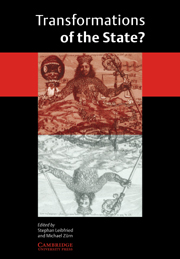Abstract
While many important social processes cut across national borders and have transnational institutions to regulate them, democratic participation still occurs almost exclusively within individual nation states. Public information and debate are essential ingredients of democracy, and their confinement to the individual national public sphere threatens the democratic aspirations and legitimacy of transnational institutions. Therefore, it is often argued that the European Union can only achieve greater legitimacy if there is a Europeanization of national public spheres. Has public discourse in fact Europeanized in the last decades? Here we present results from a study of major national newspapers from five European countries. Europeanization is defined in three dimensions: Europeanization of contents, Europeanization of public identities, and Europeanization of communication flows. Our results show that national public spheres are, in fact, quite resilient and that change is slow or halting. We discuss several possible explanations for this resilience, and go on to question the assumption that the legitimacy of European institutions depends on Europeanization of public discourse.

Peters, Bernhard; Sifft, Stefanie; Wimmel, Andreas; Brüggemann, Michael; Kleinen-von Königslöw, Katharina (2005): National and Transnational Public Spheres. The Case of the EU. In European Review 13 (Supp. No. 1), pp. 139–160. Available online at https://doi.org/10.1017/CBO9780511752193.007.
